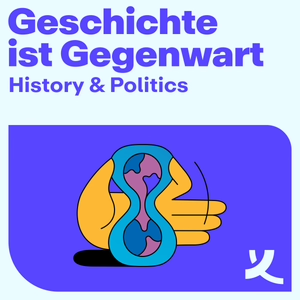
Happiness
01/24/02 • 28 min
1 Listener
Melvyn Bragg and guests discuss whether 'happiness' means living a life of pleasure, or of virtue. It is an old question, and the Roman poet Horace attempted to answer it when he wrote; 'Not the owner of many possessions will you be right to call happy: he more rightly deserves the name of happy who knows how to use the gods's gifts wisely and to put up with rough poverty, and who fears dishonour more than death'. It seems a noble sentiment but for the Greek Sophist Thrasymachus this sort of attitude was the epitome of moral weakness: For him poverty was miserable, and happiness flowed from wealth and power over men, an idea so persuasive that Plato wrote The Republic in response to its challenge. What have our philosophers made of the compulsion to be happy? And how much does this ancient debate still define what it means to be happy today? Are we entitled to health, wealth and the pursuit of pleasure or is true contentment something else entirely? With Angie Hobbs, Lecturer in Philosophy at the University of Warwick; Simon Blackburn, Professor of Philosophy at Cambridge University; Anthony Grayling, Reader in Philosophy at Birkbeck College, University of London.
Melvyn Bragg and guests discuss whether 'happiness' means living a life of pleasure, or of virtue. It is an old question, and the Roman poet Horace attempted to answer it when he wrote; 'Not the owner of many possessions will you be right to call happy: he more rightly deserves the name of happy who knows how to use the gods's gifts wisely and to put up with rough poverty, and who fears dishonour more than death'. It seems a noble sentiment but for the Greek Sophist Thrasymachus this sort of attitude was the epitome of moral weakness: For him poverty was miserable, and happiness flowed from wealth and power over men, an idea so persuasive that Plato wrote The Republic in response to its challenge. What have our philosophers made of the compulsion to be happy? And how much does this ancient debate still define what it means to be happy today? Are we entitled to health, wealth and the pursuit of pleasure or is true contentment something else entirely? With Angie Hobbs, Lecturer in Philosophy at the University of Warwick; Simon Blackburn, Professor of Philosophy at Cambridge University; Anthony Grayling, Reader in Philosophy at Birkbeck College, University of London.
Previous Episode

Confucius
Melvyn Bragg examines the philosophy of Confucius. In the 5th century BC a wise man called Kung Fu Tzu said, 'study the past if you would divine the future'. This powerful maxim helped form the body of ideas, which more than Buddhism, more than Daoism, more even than Communism has defined what it is to be Chinese. It is a philosophy that we call Confucianism, and as well as asserting the importance of learning from the past it embodies a respect for heirachy, ritual and parents.But who was Confucius, what were his ideas and how did they succeed in becoming the bedrock for a civilisation? With Frances Wood, Curator of the Chinese section of the British Library, Tim Barrett Professor of East Asian History at SOAS, the School of African and Oriental Studies at London University, and Dr Tao Tao Liu, Tutorial Fellow in Oriental Studies at Wadham College, Oxford University.
Next Episode

Virtue
Melvyn Bragg and guests discuss the history of virtue. When Socrates asked the question ‘How should man live?’ Plato and Aristotle answered that man should live a life of virtue. Plato claimed there were four great virtues - Temperance, Justice, Prudence and Courage and the Christian Church added three more - Faith, Hope and Love. But where does the motivation for virtue come from? Do we need rules to tell us how to behave or can we rely on our feelings of compassion and empathy towards other human beings? Shakespeare’s Iago says “Virtue! A fig! ‘tis in ourselves that we are thus or thus. Our bodies are our gardens to the which our wills are gardeners. ” So is virtue a character trait possessed by some but not others? Is it derived from reason? Or does it flow from the innate sympathies of the human heart? For the last two thousand years philosophers have grappled with these ideas, but now in the twenty first century a modern reappraisal of virtue is taking the argument back to basics with Aristotle. With Galen Strawson, Professor of Philosophy at the University of Reading; Miranda Fricker, Lecturer in Philosophy at Birkbeck, University of London; Roger Crisp, Uehiro Fellow and Tutor in Philosophy at St Anne's College, Oxford.
If you like this episode you’ll love
Episode Comments
Generate a badge
Get a badge for your website that links back to this episode
<a href="https://goodpods.com/podcasts/in-our-time-philosophy-19402/happiness-671411"> <img src="https://storage.googleapis.com/goodpods-images-bucket/badges/generic-badge-1.svg" alt="listen to happiness on goodpods" style="width: 225px" /> </a>
Copy




